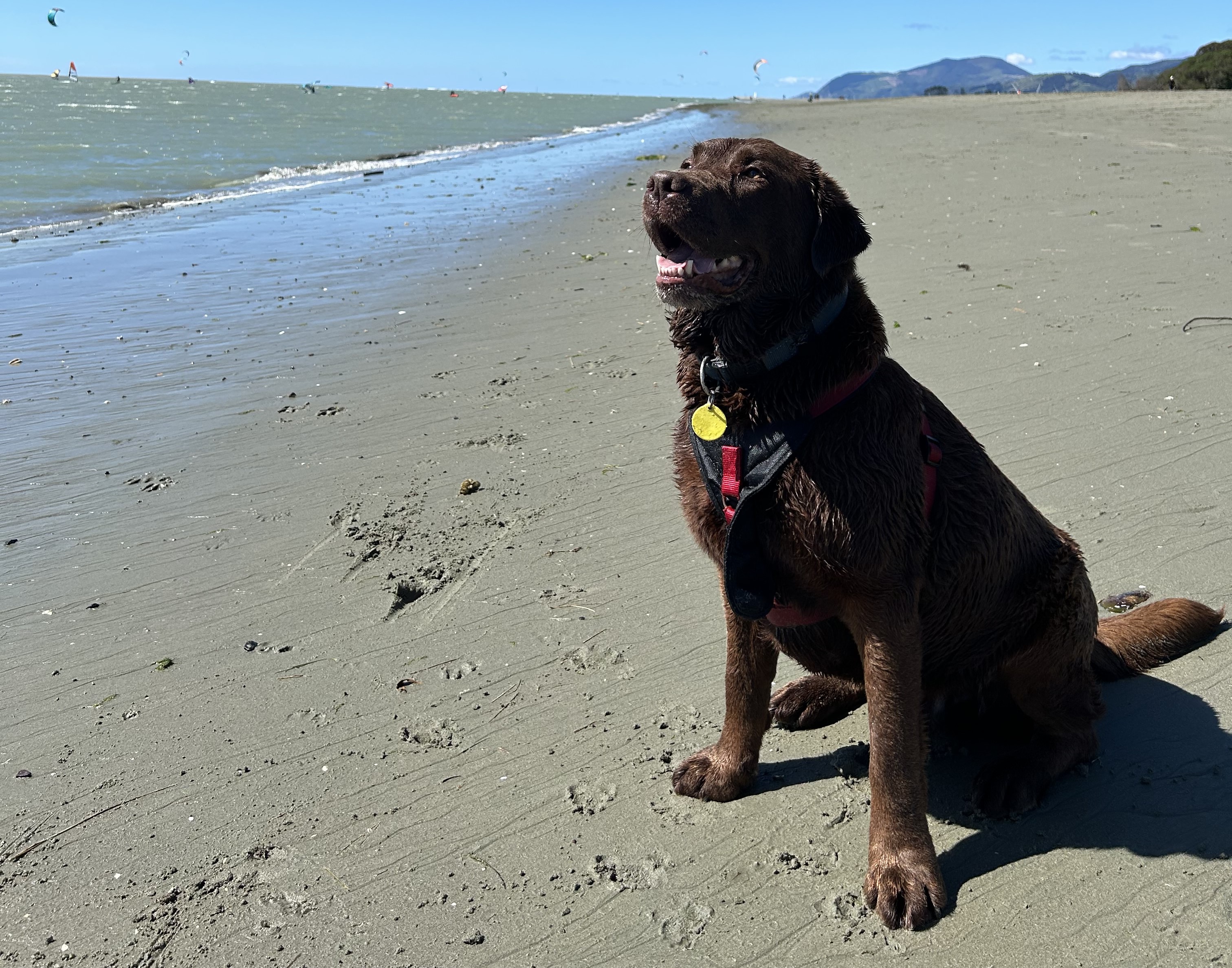Debate sparks over dogs and fishers sharing beach

Tāhunanui’s back beach is a popular area for off-leash dog walking. Photo: Anton Meyer.
ANTON MEYER
As the first glimpse of summer starts to appear for another year, so too does a problem on Nelson’s most popular shared beach.
Tāhunanui’s back beach is a popular area for off-leash dog walking and for those fishing in the Blind Channel, but from time-to-time the two recreations clash.
Over the years, stories have surfaced of dogs who have swallowed or stood on stray fishhooks that have either washed up on the beach or been left behind by fishers.
Often the hooks still have the remnants of bait, an irresistible odour to unsuspecting pooches.
A fisherman, who asked not to be identified, says it is a problem and hopes that a solution can be found, but is unsure himself what that solution may be.
The Blind Channel is one of his best fishing spots, where species including rig and snapper are plentiful, but fish can be powerful, breaking lines, leaving stray hooks in the process.
“The problem is that if a fish comes loose while still in the water and breaks my line, it [the line] floats in the water with the hook and there is nothing you can do about it,” he says. “I always make sure that I don’t leave any rubbish behind and that I don’t harm anyone, especially the dogs.”
But often the tide washes these broken lines and hooks back onto the beach.
Nelson Vets owner Brendan Hickman warns that prevention is the key and recommends dog owners take up pet insurance for unexpected events such as a fishhook injury.
“The first thing you usually do is diagnose the presence of fishhooks in dogs, x-rays are really helpful to see if a fishhook was ingested and where it may be located,” Brendan says.
Endoscopy equipment allows the vet to remove a hook without a full operation, but it’s not always successful. The surgery gets more complicated if the dog’s owner tries to pull the hook back up, as it can tear through vital organs like the heart or the lungs.
If the hook goes further down into the stomach or intestines, there is further risk of it getting caught and then penetrating the intestine, which can lead to life-threatening infection.
“If your dog eats a fishhook, you should immediately call a vet,” Brendan says. “Waiting is a very dangerous game to play.”
It’s not just swallowing the hook that can cause damage, barbs on fishhooks can become deeply embedded in the tissue when stood on and can be difficult to remove without damaging the tissue, according to Brendan.
A dog owner walking on Tāhunanui Beach, who also asked to remain anonymous, says she often sees hooks and line on the beach and worries for her dog’s safety.
“What the fishermen bring with them to fish, they should take away again,” she says. “You can’t forbid them to fish but maybe you can’t do it in the area where dogs are allowed,” she suggests.
“This beach is open to everyone, and we should all get along and find a solution together,” the fisherman adds.
